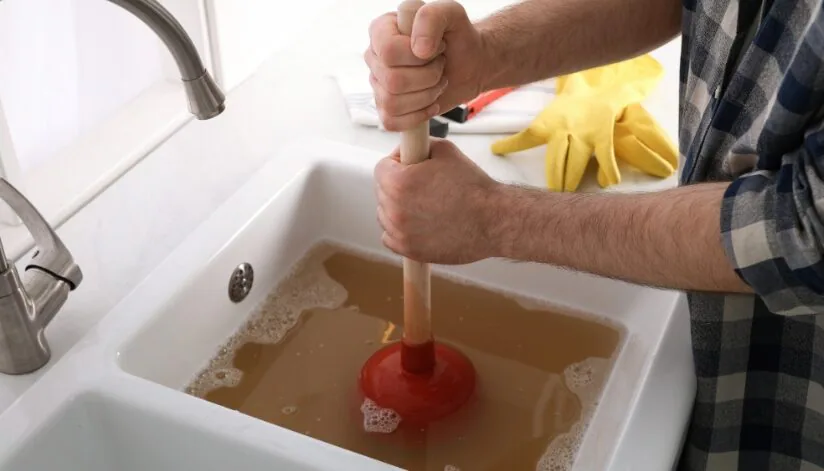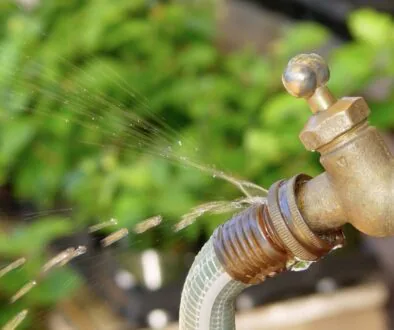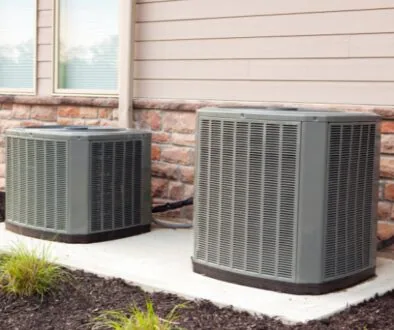How Do I Unclog A Drain Without Chemicals?
Clogged drains are a common household problem, and many homeowners instinctively reach for chemical drain cleaners to solve the issue. However, harsh chemicals can damage pipes, harm the environment, and pose health risks to you and your family. The good news is that there are effective, chemical-free ways to unclog a drain using tools and natural solutions. In this guide, the experts at Niebuhr Plumbing, Heating, and Air Conditioning will explain safe and effective methods to unclog a drain without relying on harmful chemicals.
Why Avoid Chemical Drain Cleaners?
While chemical drain cleaners promise fast results, they come with significant drawbacks:
- Pipe Damage – Many commercial cleaners contain harsh acids or lye, which can erode older metal pipes and weaken PVC over time.
- Environmental Concerns – These chemicals can enter water systems and harm local ecosystems.
- Health Hazards – Fumes from drain cleaners can be harmful when inhaled, and accidental skin or eye contact can cause burns.
Instead of relying on chemicals, try these safe, effective alternatives to keep your drains clear and your plumbing in top condition.
How To Unclog A Drain Without Chemicals
1. Baking Soda And Vinegar Method
One of the most popular and eco-friendly ways to clear a drain is by using baking soda and vinegar. This method is effective for minor clogs caused by grease, soap scum, and organic buildup.
Steps:
- Boil water – Pour a pot of boiling water down the drain to loosen debris.
- Add baking soda – Pour ½ cup of baking soda into the drain. Let it sit for a few minutes.
- Pour vinegar – Add 1 cup of white vinegar and immediately cover the drain to contain the fizzing reaction.
- Wait 15 minutes – Allow the mixture to break down buildup inside the pipes.
- Flush with boiling water – Pour another pot of boiling water down the drain to clear out any remaining debris.
This method works best for slow drains and minor blockages. If the clog persists, you may need to use a plunger or drain snake.
2. Plungers Vs. Drain Snakes
For tougher clogs, plungers and drain snakes (also called augers) can be highly effective to unclog a drain without introducing harmful chemicals.
Using a Plunger
A plunger is ideal for sink, tub, or shower drains that are clogged with hair, soap residue, or small food particles.
Steps:
- Create a seal – If using a plunger on a sink, cover the overflow hole with a wet rag to improve suction.
- Fill with water – Add enough water to submerge the plunger head completely.
- Plunge vigorously – Push and pull the plunger forcefully for about 20-30 seconds to dislodge the clog.
- Check for drainage – If water starts flowing, flush with warm water to clear any leftover debris.
Using a Drain Snake
A drain snake is a flexible, coiled tool designed to break up and pull out blockages. This tool is great for stubborn clogs that a plunger can’t fix.
Steps:
- Insert the snake – Push the end of the drain snake into the drain and start turning the handle.
- Break up the clog – When you feel resistance, twist and push the snake to break up the blockage.
- Remove the debris – Slowly pull the snake out, bringing the clog with it. Dispose of any hair, gunk, or buildup.
- Flush with hot water – Run hot water down the drain to ensure it’s completely clear.
3. When To Avoid Chemical Cleaners
In addition to the damage they can cause to pipes and the environment, chemical drain cleaners should never be used in certain situations:
- If you have old or corroded pipes – Chemicals can weaken older plumbing, increasing the risk of leaks or bursts.
- If your drain is completely blocked – A full blockage can trap chemicals in one spot, causing further pipe damage.
- If you’ve already tried other solutions – Mixing chemical drain cleaners with baking soda, vinegar, or other solutions can create hazardous fumes.
Preventing Future Clogs
Once your drain is clear, take steps to prevent future blockages:
- Use drain covers – These catch hair, food scraps, and debris before they enter your pipes.
- Avoid pouring grease down the drain – Grease and oil solidify in pipes and cause stubborn clogs.
- Run hot water after each use – Flushing with hot water helps clear away soap residue and grease.
- Clean drains regularly – Use the baking soda and vinegar method once a month to maintain clear pipes.
Conclusion
Chemical-free drain cleaning methods are not only safer for your plumbing but also better for the environment and your household. Whether you use baking soda and vinegar, a plunger, or a drain snake, these methods can effectively clear blockages without the risks of chemical drain cleaners.
If you’re dealing with a stubborn clog that won’t go away, Niebuhr Plumbing, Heating, and Air Conditioning is here to help. We proudly serve La Crosse, Onalaska, West Salem, Sparta, and the surrounding Coulee Region. Contact us today at 608-782-1700 for professional plumbing services and drain cleaning solutions.




